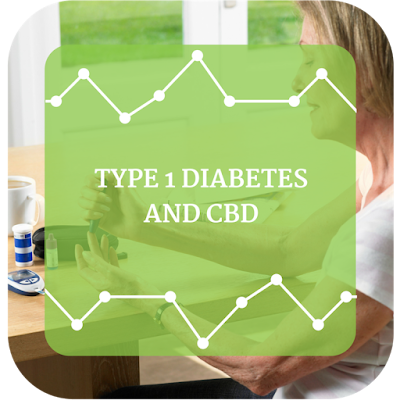Type 1 Diabetes and CBD
Over 1/3 of the entire population of Americans are currently living with either type one or type two diabetes. The numbers reveal that the prevalence of diabetes in the USA is not a trivial issue.
In seeking solutions to the problem, researchers have stumbled upon CBD as a possible panacea. To identify the possible connection between Type 1 diabetes and CBD, we will discuss the causes and effects of diabetes as well as CBD as a potential treatment option.
What is Type 1 Diabetes?
Diabetes, also referred to as diabetes mellitus, is a term used in describing a group of metabolic diseases which result in a significant rise in a person's blood sugar levels.
Unlike type-2 diabetes, which is characterized by the body’s inability to absorb insulin, type 1 diabetes is characterized by the body's inability to produce insulin. Type-1 diabetes occurs when the immune system fails to fight against bacteria and viruses but instead, attacks the pancreas and destroys the beta cells that produce insulin. The destruction of these cells leaves the body with little or no insulin to help transport sugar to the cells. The absence of insulin in the body inhibits the ability of the body to convert sugar into usable energy, and this causes sugar to build up in the blood until diabetes-related symptoms develop.
Although scientists have suggested that various factors such as viruses in the environment and hereditary genes may be responsible for triggering the disease, the exact causes of the disease are unknown.
Scientists' recent foray into the sphere of medical marijuana has provided an avenue to study the health benefits of using CBD for type-1 diabetes.
CBD and Type 1 Diabetes?
Type 1 diabetes cannot be prevented and is often characterized by thirst, extreme hunger, fatigue, frequent urination, excessive weight loss, mood swings, etc.
Recent research shows that CBD can effectively reduce the symptoms and complications associated with type-1 diabetes.
CBD and Atherosclerosis
Atherosclerosis refers to a diabetic complication which results in the narrowing and hardening of arteries due to the build-up of plaque in the arteries. CBD can help regulate this condition and reduce vascular inflammation in the body.
CBD and Neuropathy
Neuropathy or nerve damage is a common occurrence for diabetic patients which develops due to longterm hyperglycemia. A study found that CBD could be used to prevent neuropathy. This is linked to its ability to slow neurotransmission on presynaptic CB1 receptors, thereby reducing painful sensory neuron stimulation. It may also protect the liver from oxidative stress, another factor which contributes to the development of neuropathy.
CBD and Diabetic Retinopathy
Vascular inflammation in diabetes patients may lead to blindness especially in adults. The cannabinoid receptors, CB1 and CB2, are located throughout the retina, and CBD's interaction with the CB1 receptor can prevent the death of retinal cells.
CBD and Skin Irritations
Diabetic patients also suffer from skin complications including rashes and sores on various parts of the body. The anti-inflammatory qualities of CBD may provide relief from the discomfort which accompanies these irritations.
Conclusion
The positive effects of CBD may help in the treatment of Type 1 diabetes and the restoration of homeostasis and proper body metabolism, allowing the body to heal itself naturally.
